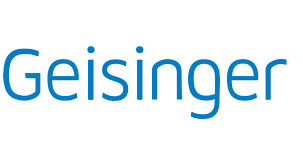预约演示
更新于:2026-03-01

Novartis AG
更新于:2026-03-01
概览
标签
肿瘤
其他疾病
神经系统疾病
小分子化药
单克隆抗体
非降解型分子胶
疾病领域得分
一眼洞穿机构专注的疾病领域
暂无数据
技术平台
公司药物应用最多的技术
暂无数据
靶点
公司最常开发的靶点
暂无数据
| 排名前五的药物类型 | 数量 |
|---|---|
| 小分子化药 | 265 |
| 单克隆抗体 | 43 |
| 腺相关病毒基因治疗 | 13 |
| 治疗用放射药物 | 13 |
| 多肽偶联核素 | 12 |
关联
464
项与 Novartis AG 相关的药物靶点 |
作用机制 BTK抑制剂 |
最高研发阶段批准上市 |
首次获批国家/地区 美国 |
首次获批日期2025-09-30 |
靶点 |
作用机制 ETA拮抗剂 |
最高研发阶段批准上市 |
首次获批国家/地区 美国 |
首次获批日期2025-04-02 |
靶点 |
作用机制 CFB抑制剂 |
最高研发阶段批准上市 |
首次获批国家/地区 美国 |
首次获批日期2023-12-05 |
5,656
项与 Novartis AG 相关的临床试验NCT07431931
Optimizing Referral Pathways for Patients With Hematuria and Moderate-Severe Proteinuria - Phase 2: A Quality Improvement Project
The purpose of the study is to evaluate prospectively the impact of an electronic health record (EHR) alert on primary care providers' (PCP) referral to Nephrology of Geisinger patients with high risk signs (blood and protein in the urine) of glomerulonephritis. This will help quantify the relative effectiveness of EHR alerts on PCPs' referral patterns.
开始日期2026-11-01 |
申办/合作机构  Geisinger Clinic Geisinger Clinic [+1] |
NCT07416162
A Post-marketing Surveillance of Fabhalta® (Iptacopan) in Korean Patients With Paroxysmal Nocturnal Hemoglobinuria (PNH) or C3 Glomerulopathy (C3G)
This is a post-marketing surveillance study conducted as part of the Risk Management Plan (RMP) for South Korea, to evaluate the safety and effectiveness of iptacopan in real-world clinical settings for the treatment of either PNH or C3G in Korean patients. Prospective data will be collected from patient medical records to address the objectives for all eligible populations.
开始日期2026-07-31 |
NCT07421167
A Phase 2 Open-label Study to Evaluate the Tolerability of Ianalumab (VAY736) With Investigator's Choice Thrombopoietin Receptor Agonist (IC TPO-RA) in Patients With Primary Immune Thrombocytopenia (ITP) Previously Treated With at Least One Treatment (VAY2EXPLORE)
The purpose of this study is to investigate the tolerability of ianalumab (9 mg/kg) with investigator's choice thrombopoietin receptor agonist (IC TPO-RA) in participants diagnosed with primary immune thrombocytopenia (ITP) who have been treated with at least one but no more than four prior treatments, and with no change in IC TPO-RA dose in at least the last 14 days prior to the start of ianalumab.
开始日期2026-06-29 |
100 项与 Novartis AG 相关的临床结果
登录后查看更多信息
0 项与 Novartis AG 相关的专利(医药)
登录后查看更多信息
12,879
项与 Novartis AG 相关的文献(医药)2026-03-24·ANALYTICAL LETTERS
Simple Determination of Cystine in Artificial Urine and Drug Matrices Using Digital Image Colorimetry
作者: Zaman, Buse Tuğba ; Kustanto, Tülay Borahan ; Gel, Mehmet Selim ; Polat Korkunç, Ümmügülsüm ; Bakırdere, Sezgin
Smartphone-based digital image colorimetry was developed for the determination of cystine in pharmaceutical formulations and artificial urine samples.A lab-made colorimetric box was designed for capturing the digital images of sample solutions using a smartphone.The developed method employs a simple colorimetric method called nitroprusside test which specifically targets free -SH groups.Cystine was reduced to cysteine before the colorimetric test was applied.The color intensity is inversely related to the concentration of the analyte.The best linearity was obtained with the G color channel.Digital image processing was performed using the RGB Color Detector mobile application to obtain anal. data.The developed method exhibited good linearity in the range of 29.7-00.3 mg/kg.The limits of detection and quantification were 9.7 mg/kg and 32.3 mg/kg, resp.The percent recoveries were 104.2 ± 7.8% and 108.7 ± 4.6%, which proved the accuracy and applicability of the developed method.
2026-03-01·JOURNAL OF PHARMACEUTICAL SCIENCES
Do we worry too much about polysorbate degradation? An industry-wide perspective with real-life case studies
Article
作者: Chery, Cyrille ; Zhang, Shousong Jason ; Steinmeyer, Neil ; Prajapati, Indira ; Bupp, Charlie ; Wuchner, Klaus ; Yi, Linda ; Krishnamachari, Yogita ; Mould, Ryan E ; Guibal, Pierre ; Nikels, Felix ; Gupta, Sanjay ; Bleher, Stefan ; Peuker, Sebastian ; Wiggers, Felix ; Bechtold-Peters, Karoline ; Garidel, Patrick
Polysorbates are commonly used in biotherapeutic drug formulations, but their stability over the course of the product's shelf life is a matter of concern. An industry-wide survey involving 15 biopharmaceutical companies found that 23 biotherapeutic drug products (DPs) in clinical development exhibited significant reductions in polysorbate (PS) content during long-term storage at 2-8 °C. In all cases, this decline did not impact critical quality attributes (CQAs), except for the formation of fatty acid (FA)-related sub-visible particles (SVP) in 7 DPs and FA-visible particles (VP) in 1 DP. Particle formation predominantly resulted from enzymatic or uncharacterized degradation mechanisms, not oxidative pathways. Corrective measures, such as optimization of downstream purification or reformulation, were undertaken only when SVP levels exceeded acceptable thresholds. For PS20 and PS80, the levels of FAs generated were estimated and translated into predicted SVP levels based on theoretical assumptions. Additionally, the current understanding of PS degradation in biopharmaceuticals, based on the latest literature, is summarized, with consideration of safety and immunogenicity aspects related to the primary PS degradation products. Overall, PS degradation is considered manageable and not problematic under practical conditions. Enzymatic hydrolysis of PS is generally deemed acceptable, provided that all CQAs are maintained within specified limits. If FA-related particles are formed it is recommended that the PS degradation pathway is well characterized, and an appropriate control strategy be implemented.
2026-03-01·DRUG SAFETY
Algorithms to Identify Major Congenital Malformations in Routinely Collected Healthcare Data: A Systematic Review
Review
作者: Mølgaard-Nielsen, Ditte ; Rivero-Ferrer, Elena ; Bennett, Dimitri ; Alghamdi, Eman A ; Lopez-Leon, Sandra ; Jacobson, Melanie H ; Afonso, Ana Sofia ; Andrade, Susan E ; Murray, Gayle ; Kharat, Vineetkumar ; Kürzinger, Marie-Laure ; Le Noan-Lainé, Maryline ; Ajao, Adebola ; Sabidó, Meritxell
INTRODUCTION:
Major congenital malformations (MCMs) are a primary outcome of interest in pregnancy safety studies.
OBJECTIVE:
This study aimed to identify and summarize algorithms used to identify MCMs in routinely collected healthcare data sources in the USA, Canada, and Europe by conducting a systematic literature review.
METHODS:
We developed a search strategy to identify studies containing algorithms for MCMs from January 1, 2010, to April 11, 2025. Search terms included those related to MCMs as an outcome, routinely collected healthcare data, epidemiologic designs likely to incorporate algorithms, and pregnant individuals and/or infants. Study review and data extraction was conducted in duplicate using a standardized data collection form.
RESULTS:
Among the initially identified 2242 studies, 974 were selected for full-text review. Of these, 70.3% were excluded, leaving 289 studies. Over half (58.1%) of the included studies were from Europe, predominantly from Nordic countries using national register data (N = 135; 80.4%). Studies using claims (18.0%) or hospital discharge data (16.3%) were also common. Although there was heterogeneity in the timing of MCM assessment, 55.7% of studies collected MCMs through the infant's first year of life. Overall, algorithms varied across data source type and geography in the codes specified, rules, utilization of maternal versus infant records, and coding system. There were 27 (9.3%) validation studies, 70.4% of which were based on claims and/or electronic health record data only. Most had positive predictive values >70%, though this varied according to MCM type or anatomical site.
CONCLUSION:
We provide the first comprehensive systematic literature review of algorithms used to identify MCMs in routinely collected healthcare data, aiding researchers in their ability to generate reliable evidence in pregnancy safety pharmacoepidemiology.
23,114
项与 Novartis AG 相关的新闻(医药)2026-02-28
·医药代表
继续和小伙伴们分享跨国药企高管动态。
2 月 26 日,默沙东宣布,任命范柏睿(Brecht Vanneste)为默沙东印度公司下一任董事总经理,直接汇报于默沙东高级副总裁、亚太地区总裁 Andrew Otoo,并进入默沙东亚太区领导团队(APLT)。
此任命自 2026 年 3 月 1 日正式生效,范柏睿将常驻孟买,负责指导默沙东在印度的业务战略和市场拓展。
调任之前,范柏睿为默沙东中国肿瘤事业部负责人,当日,默沙东中国内部宣布了这个消息,印度《经济时报》、Pharmanewslive、Pharmabiz 等媒体也做了报道。
默沙东表示,范柏睿将接替现任负责人 Rehan A. Khan,全面负责默沙东在印度市场的业务运营与战略推进。此次任命正值默沙东在印度持续深化其肿瘤、疫苗及医院产品组合布局之际。
范柏睿拥有丰富的跨区域商业管理经验,曾任默沙东比利时和卢森堡董事总经理 ,在默沙东服务超 27 年之久,历任默沙东比利时对外事务负责人、欧洲和加拿大市场阿尔茨海默症产品总监、瑞士市场心血管产品区域营销负责人等职务。
2022 年 10 月 21 日,默沙东宣布中国肿瘤事业部负责人田瑀决定离开公司,加入另一家跨国药企,任命范柏睿接任默沙东中国肿瘤事业部负责人职务,自 2022 年 10 月 24 日生效,他将常驻上海,直接汇报于默沙东中国总裁田安娜(见 MRCLUB 历史消息:诺华、默沙东管理层变动,美纳里尼中国CEO确定)。
此次调任印度董事总经理,默沙东方面表示,印度是公司全球战略中的重要市场之一,未来将继续聚焦创新产品的引入、商业化能力建设以及与本地医疗体系的深度合作。
近年来,默沙东持续强化其全球重点市场的本地化领导团队,通过具备多元国际经验的管理者推动业务发展与组织升级。此次任命被视为公司在印度市场长期投入战略的一部分。
此次任命正值印度生物制药市场快速扩张之际,市场增长主要由对创新药物、疫苗及专科治疗方案日益增长的需求所驱动。作为董事总经理,范柏睿将负责使默沙东的产品与印度不断变化的医疗需求保持一致,强化与医疗领域相关方的合作,并在重点疾病领域扩大默沙东的业务版图。
印度业内观察人士指出,此次领导层更替彰显了默沙东在印度市场强化战略重点的承诺,这家跨国药企正持续加大在研发、市场准入及以患者为中心项目方面的投入,范柏睿的全球经验有望支持默沙东深化本地参与度,并在成熟及新兴治疗类别中推动长期增长。
P.S.需要红包封面的朋友,下面三个依然可以继续领取,领取时限截至 3 月 3 日~
近日热点阅读:
第11批国采,两家药企列入违规名单
一外企全球管理体系大调整
财报低迷,又一跨国药企更换CEO
这家药企副总裁,已被解除责令候查
七大跨国药企大佬新春拜年
马上进药!奖金多多!!
器械巨头,重组销售队伍
又一家日企,大幅缩减办事处
赛诺菲更换特药事业部负责人
春节百亿大单!丹纳赫拿下迈心诺
代表驻地双轨制,又一家宣布实施
财神到你家!
AI掀起全球裁员潮,制药业会是“重灾区”吗?
逢压必进,拜库神!
财神人人爱,库神才是真刚需
三年替代医生?马斯克预言引发医学大佬强烈回应
默沙东架构调整,两大高管均医药代表出身
第11批国采,25 省市公布执标时间
强生创新制药宣布潘昉玥离任
涉4家药企!国家市场监管总局听证公告来了
三大知名药企,节后高管变动
超3000人!晖致启动裁员计划
63亿!旭化成收购Aicuris
网红A司,风口加速扩招中
翰森制药急招核心岗搭建王牌团队
拜耳中国新春热招
最新药企内部招聘(2月27日更新)
#跨国药企在进博会
医药代表 伴您成长!
高管变更疫苗财报
2026-02-28
·网易号
全球生物医药的重力中心正在向东方倾斜。在CGT领域,当西方巨头还在为支付困局和制造瓶颈踌躇时,中国已悄然占据了全球在研管线的半壁江山,中国创新力量以“首创性突围”,开始重新定义全球免疫疗法的技术标准与商业逻辑。2025年,传奇生物的BCMA CAR-T产品CARVYKTI前三季度销售额突破13亿美元,成为中国首个跻身“重磅炸弹”(年销售额超过10亿美元的药物,通常用于治疗常见疾病——编注)俱乐部的细胞治疗药物时,全球生物医药界意识到:中国不仅在参与这场以细胞与基因治疗(Cell and Gene Therapy,简称CGT)为代表的第三次药物革命,更在重新定义全球创新药物的研发范式。这标志着CGT作为继小分子、大分子之后的第三次药物革命,正在经历从西方向东方的产业转移。过去十年,中国CGT产业完成了从跟跑、并跑到逐渐领跑的非凡跨越。这一历程既是中国生物医药创新的缩影,也是全球医药创新格局重构的见证。这一成就的背后是中国在CGT领域持续十年的战略布局和创新投入。从2015年政策破冰到2025年全球引领,中国建立了完整的CGT产业生态体系,包括政策支持、资本投入、人才培养和产业链建设等多个维度。中国CGT产业的崛起不仅体现在个别企业的成功上,更反映在整个产业体系的成熟和完善上。01.CGT革命:医药工业的分子生物学时代■ 从蛋白靶向到基因调控的范式转移既往化学药、多肽药物和生物药主要靶向蛋白质,而CGT将治疗层面回溯至生命源代码——DNA和RNA。这种治疗范式的转变源于对“中心法则”的深度理解和应用,也是分子生物学数十年积淀在医药工业的集中爆发(图1)。图 1:分子生物学中心法则(Central Dogma)与既往药物在蛋白质水平上进行干预不同,CGT直接在基因层面进行修正和调控,这使得对疾病的根本性治疗成为可能。例如在CAR-T治疗中,通过基因工程技术改造T细胞,使其能够特异性识别并杀伤肿瘤细胞;在基因治疗中,通过递送正确的基因副本或基因编辑工具,从根本上纠正遗传缺陷;在小核酸药物中,通过特定系统递送ASO/siRNA,敲低或沉默细胞内不正常表达基因,从而治疗疾病。CGT展现出前所未有的治疗效率。CAR-T细胞治疗在血液肿瘤领域实现90%以上的客观缓解率,基因治疗产品在单基因遗传病治疗中达到接近100%的有效率,小核酸公司创新产品阶段性超过60%的成功率。这些在以往药物时代难以想象的数据,充分展示了CGT的革命性潜力。2025年6月,国家药品监督管理局药品审评中心发布了《先进治疗药品的范围、归类和释义(征求意见稿)》,给出了更精确的先进治疗药品(ATMPs)的定义和分类[图2,本文出于行业习惯,仍统称为细胞与基因治疗(CGT)]。图 2:先进治疗药品的分类■ 递送技术突破与工业化生产驱动产业变革CGT技术平台的科学原理在生命科学研究中已经历了数十年的实践应用,但走向成药,却跨越了漫长的时光。其中,载体递送技术的突破尤为关键。慢病毒(LV)、腺相关病毒(AAV)、脂质纳米颗粒(LNP)、N-乙酰半乳糖胺(GalNAc)等递送系统的成熟,解决了基因治疗药物的体内递送难题。这些技术突破不仅提高了递送效率,还显著改善了安全性特征,使得CGT产品的临床应用成为可能。此外,制造工艺和工业化放大生产等的持续升级和迭代,使得药品生产成本显著降低,产品可及正逐渐成为可能。在制药工业界,CMC(化学、生产和控制)的瓶颈往往是科研技术走向工业应用初期的一道难关,这也是CGT产品在海外从获批到商业化时间漫长的原因之一。中国企业在自动化封闭式生产系统上的创新,使得CAR-T治疗成本从最初的数百万元降至百万元,采用一次性生物反应器、自动化细胞处理系统等先进设备,不仅提高了生产效率,还确保了产品质量的一致性和稳定性。CDMO的专业化分工,工艺技术的持续优化和规模化生产,使得质粒、病毒、细胞、LNP、修饰核酸等的成本显著下降,也使得CGT产品的大规模应用成为可能,为更广泛的患者群体提供了治疗机会。02.产业与资本:中国CGT的十年产业与资本,相辅相成,缺一不可,却又经常出现错位,在行业初期尤其难以取得平衡。其中有个经典的“Gartner 技术成熟度曲线”概念:绝大多数技术在经历资本助推的“期望膨胀”的狂热巅峰后跌落至“泡沫破裂”的低谷;唯有那些在沉寂中完成技术迭代与商业验证的幸存者,才能穿越周期,最终抵达大规模应用的“生产成熟期”。中国CGT在过去十年的发展过程中也经历了这样一个经典的历程,各个细分技术领域的周期时点会有先后顺序,但大体可以分为下面四个阶段。■ 积蓄期(2015—2018):政策破冰与生态萌芽2015年《干细胞临床研究管理办法(试行)》的发布,标志着中国CGT监管的破冰。这一政策为长期处于灰色地带的细胞治疗研究提供了明确的规范框架,为产业发展创造了初步的政策环境。在此期间,第一批拓荒者开始进入市场,但产业基础薄弱,关键原材料和设备严重依赖进口。监管体系开始构建,2017年中国药监部门加入ICH,药品监管与国际接轨,为创新药物的审评审批创造了条件。2017年,明确CAR-T细胞治疗按药品申报,传奇生物的BCMA CAR-T成为首个获得IND(Investigational New Drug,一般是指尚未经过上市审批,正在进行各阶段临床试验的新药——编注)的细胞治疗产品。同时研究者发起的临床研究(IIT)在这一时期发挥了重要作用,成为中国CGT发展的独特优势。通过IIT探索推动创新产品的概念验证,其总成本可能仅为传统路径的1/10甚至更低,验证周期也可缩短至少一半。这一机制为中国CGT项目的快速验证提供了重要平台,促进了技术创新和临床转化。在小核酸领域,为数不多的早期探索者瑞博、圣诺也在为行业铺路,摸索和构建中国小核酸领域分子发现、专利、CMC、注册路径等的生态基础。■ 膨胀期(2019—2021):资本狂热与创新同质化全球生物医药投资进入高峰期,随着凯特(Kite Pharma,后被吉利德收购)、朱诺医疗(Juno,后被制药巨头新基收购)、AveXis(后被诺华公司收购)、Spark(后被罗氏收购)等CGT行业公司得到MNC(大型跨国药企)的并购,CAR-T、AAV基因治疗等领域成为欧美资本追逐的焦点,中国公司也纷纷迎来资本的高光时刻,企业数量和融资额快速膨胀。资本的大量涌入加速了技术转化和产业发展,但也带来了一定的泡沫。在新冠疫情的大背景之下,资本对于医疗医药的关注和热情更是到了极点,而引爆大家热情的正是mRNA。莫德纳(Moderna)、拜恩泰科(BioNtech)这样的明星创业企业闪耀欧美资本市场,新冠疫苗获得成功后更是进入疯狂。中国的mRNA积累时日尚短,但几乎每一家的融资都水涨船高,一票难求。在mRNA的宏大叙事之外,诸多新技术平台也纷纷经历高光时刻。2020年基因编辑获得诺贝尔奖,2021年Fate iPSC-NK数据读出,都成为行业催化剂;小核酸在标的稀缺多年以后,也成为海归创业的沃土。正是在这场资本狂欢的盛宴之中,潜藏的危机才越发凸显。创新同质化现象严重,CAR-T领域CD19和BCMA等热门靶点聚集了过多资源,一如当年的PD1(免疫抑制分子)。团队组建仓促,管线立项草率,类似的情况在各个领域都不鲜见。甚至一度出现部分投资人唯恐错过机会,从高校里抢教授的情况。■ 调整期(2022—2025):大浪淘沙与价值回归2022年后,新冠疫情及全球宏观变化之后,非医疗资本迅速撤退离场,资本市场显著降温,从各大生物园区门口的停车数量就能一窥端倪。在这种背景下,企业从追求管线数量转向关注临床进度和商业化价值,差异化创新成为主旋律。与此同时,危中有机。2023年,传奇生物的CAR-T产品获得美国FDA批准上市,成为中国首个获得美国上市许可的细胞治疗产品,这一突破性进展标志着中国CGT企业开始具备全球竞争力。此外,多个CAR-T、AAV产品也在中国陆续获批上市,进入商业化探索阶段。亘喜被国际制药巨头收购,CAR-T领域的西比曼、普瑞金,小核酸领域的瑞博、舶望、圣因等也相继打开了国际MNC BD合作的窗口,证明放眼全球“In Global For Global”(立足全球、服务全球)的创新是有价值的。■ 新发展期(未来):全球化竞争与新机遇2025年可能成为行业的关键转折点:政策与资本的双重回暖推动了中国企业全球竞争力的质变,授权交易额屡创新高。随着2026年1月瑞博登陆港交所及后续IPO潮的启动,资本市场正回归理性——估值逻辑将不再依赖单纯的概念,而是严格锚定管线的临床价值与国际地位。坐拥全球半数在研管线,中国CGT产业正迈入“2.0阶段”。in vivo CAR-T是这一转型的典型样本。尽管跨国并购潮再次引发了集中布局,但与PD-1时代的同质化(Me-too)内卷不同,这是一场以First-in-Class(同类首创)为标准的饱和式突围。在这一前沿领域,唯有具备底层科学突破能力的企业,才能完成从“跟跑”到“领跑”的跨越。03.技术平台兵器谱:攻克疾病的七种武器如果说感知和决策解决的是“看清楚”和“算明白”,那么执行层决定的,是这些判断是否能够真正转化为结果。在生物医药的创新版图中,CGT领域已形成七大核心技术平台。这些平台各具特色,中美两国企业凭借各自优势,在这些赛道上的竞争与合作共同推动了全球产业的发展。■ 免疫细胞治疗:刺杀癌细胞免疫细胞治疗代表着从“外源性药物”到“内源性活药”的范式革命。CAR-T技术如同精准刺杀的长生剑,在血液肿瘤治疗中展现出突破性疗效。美国诺华(Novartis)和凯特在2017年率先实现了CAR-T产品的商业化,开启了肿瘤免疫细胞治疗的新纪元。中国迅速吸收了CAR-T技术,并形成了全球最密集的产业集群。传奇生物凭借其BCMA CAR-T产品成功出海,证明了国际顶尖的研发与商业化能力。药明巨诺、复星凯特率先将海外已验证的技术引入国内并实现商业化,驯鹿生物、合源生物等则在针对BCMA、CD19等靶点的竞争中脱颖而出。科济药业率先在实体瘤治疗中取得突破。此外,西比曼、亘喜生物、艺妙神州等企业也在诸多方向上持续创新。在CAR-T之外,TCR-T/TIL/CAR-NK等技术路线也在中美持续探索。自体CAR-T在实体瘤治疗中整体进展仍相对缓慢,自免等领域仍有探索的空间,但高昂的成本和复杂的个性化制备流程限制了可及性。包括UCAR-T/iPSC-NK/in vivo CAR-T等技术路线都旨在将“活细胞疗法”转化为可规模化生产的“现货型”药品。■ AAV基因治疗:一击制胜的长效方案腺相关病毒(AAV)基因治疗旨在通过一次给药,实现长效甚至终身的治疗效果,其核心挑战在于病毒载体的设计、生产与递送。行业由Spark Therapeutics(2017年首个体内基因治疗产品获批)等先驱引领,AveXis(后被诺华收购,推出Zolgensma)和AskBio等公司推动了技术发展。2017—2020年,巨额的并购交易彰显了市场对“一次治愈”商业模式的强烈信心。中国基因治疗公司在2019年后如雨后春笋般涌现。信念医药在血友病领域进展领先并率先获批上市,嘉因生物、朗信生物、天泽云泰、纽福斯等企业在不同的遗传病赛道(如眼科、神经系统疾病)深耕。中国公司跟进迅速,临床申请数量激增,但在靶点选择上相对集中,同质化竞争初显。此外,近年来由于海外部分产品的商业化放量不及预期、长期的有效性和安全性问题以及高昂定价等带来的支付挑战,使得行业从狂热步入理性深耕阶段。如何解决规模化生产的瓶颈、优化载体设计以提升疗效和安全性,获得更扎实的临床数据,并将治疗领域从罕见病扩大到更大的适应证,是行业建立长期信心的关键。■ 小核酸药物:狙击慢性病小核酸药物(siRNA、ASO等)通过在mRNA水平干扰致病蛋白的合成,其作用机制基于精确的碱基互补配对,具有设计逻辑清晰、靶点范围广的特点。小核酸药物半年一次的给药频率为慢性病管理提供了新选择,在心血管、代谢性疾病等领域应用前景广阔,已经进入相对成熟的技术阶段。以Alnylam(全球siRNA药物领导者)、Ionis(ASO技术平台奠基者)和Arrowhead为代表,美国企业凭借在肝靶向递送技术(如GalNAc偶联)上的突破,成功将小核酸药物推向市场,证明了其作为平台技术的可靠性。中国小核酸产业的发展曾长期由瑞博生物、圣诺医药等早期开拓者默默耕耘。近年来,随着全球核酸技术热潮的到来,舶望制药、圣因生物等新兴力量获得高度关注,并在心血管、代谢性疾病等领域快速推进管线。中国企业通过License-out(对外授权)与国际大药企达成合作,价值得到认可。当前小核酸技术平台肝靶向靶点的竞争已经进入白热化,未来的竞争在于能否突破肝靶向的限制,向中枢神经系统、肌肉等肝外组织递送,以扩大治疗疆域。■ mRNA技术:平台型武器mRNA技术平台因快速设计、灵活生产的特点,在新冠疫苗中获得空前成功,但其应用远不止于此,涵盖肿瘤疫苗、蛋白替代疗法等多个领域。Moderna和BioNTech凭借新冠疫苗一跃成为生物技术巨头,完成了惊人的资本积累与技术验证。然而,后疫情时代,两家巨头及整个行业都面临“光环效应”减退的挑战。能否将平台能力成功复制到肿瘤新抗原疫苗、传染病预防、蛋白疗法等更广阔且更具挑战性的领域,是其实现长期价值的关键。新冠疫情催生了中国第一批mRNA企业,如艾博生物、深信生物、蓝鹊生物、嘉晨西海等。行业在短时间内经历了从狂热追捧到冷静反思的过程。领先企业正努力摆脱对单一技术路径(新冠疫苗)的依赖,在肿瘤疫苗、罕见病等方向进行差异化布局,但整体上面临着严峻的验证压力。in vivo CAR-T给了mRNA企业一个新的探索机遇,但靶向T细胞的LNP仍需要在科学上持续探索和突破。■ 干细胞iPSC:重编程改变细胞命运诱导多能干细胞(iPSC)技术通过重编程使体细胞回归多能状态,拥有分化为各类功能细胞的潜力,是再生医学的底层平台。Fate Therapeutics等公司是iPSC衍生细胞疗法(如iPSC-CAR-NK)的早期领军者。美国在源头创新和早期临床探索上保持领先,但同样面临细胞分化纯度、致瘤性风险、规模化制备等重大科学与工程化挑战。中国在干细胞治疗领域有长期积累,iPSC方向涌现了中盛溯源、瑞普晨创、士泽生物、霍德生物等一批创新企业。中国企业的重点在于攻克iPSC的标准化培养、定向分化、大规模生产等产业化难题,推动其从实验室走向临床,在神经退行性疾病、糖尿病等方向寻求突破。■ 基因编辑:精准修正的利器基因编辑技术(以CRISPR为代表)能够对基因组进行精准的“修正”,为根治遗传病提供了前所未有的工具。Editas Medicine、CRISPR Therapeutics等公司作为基因编辑技术的先驱经历过高光时刻,但临床都遇到了一定挑战,Intellia Therapeutics的首个体内基因编辑疗法临床数据初步验证了该技术的可行性。Verve Therapeutics则专注于体内基因编辑治疗心血管疾病。美国公司正努力将诺贝尔奖级别的科学发现,转化为可安全应用于人体的治疗方案。中国基因编辑领域以博雅辑因、邦耀生物、瑞风生物、正序生物等公司为体外基因编辑代表,它们或在β-地中海贫血等疾病上开展临床研究,或致力于开发更安全、高效的下一代编辑器(如碱基编辑、先导编辑)。锐正基因、尧唐生物等公司则率先进入体内基因编辑方向,有望跟美国公司同场竞技。中国公司正致力于在底层编辑器专利、递送技术等核心环节构建自主知识产权,并在严格的伦理与监管框架下推进临床。作为一次性疗法的探索,基因编辑如何扩展到更大适应证,并在安全性上得到长期验证,还需要持续的探索。■ 更多创新机制之“拳头”:灵活多变的组合策略除了上述主流平台,溶瘤病毒、肿瘤疫苗、外泌体、lncRNA(long non-coding RNA)等新兴机制如同灵活的“组合拳”,正在特定领域展现独特价值。它们或能直接裂解肿瘤(溶瘤病毒),或能激发特异性免疫应答(肿瘤疫苗),或能实现精准的细胞间通信与药物递送(外泌体、lncRNA)。这些技术常与主流疗法联合使用,共同构成了应对复杂疾病的创新生态。03.中国优势:全球竞争的底气所在2025年初,在全球热烈讨论DeepSeek时,在生物医药这个门槛极高、长期被欧美垄断的领域,一场静悄悄的革命正在发生。2025年2月7日,《华尔街日报》发表了一篇题为The Drug Industry Is Having Its Own DeepSeek Moment的文章——制药工业正在经历自己的DeepSeek时刻,事实也正是如此。从BD(业务发展)交易的数据来看,2015年中国创新药的License-out(对外授权)交易几乎为零,而到2025年,中国创新药License-out交易预估为2024年全球医药BD交易中的40%~50%,也就是说2024年MNC的合作项目接近一半来自中国,这是一个非常了不起的成就。虽然出于技术成熟度的原因,CGT相关交易数量还比较少,但我们有理由相信在穿越产业周期之后,中国将成为全球CGT产业的领跑者,我们具备以下四个方面的核心优势:第一,完整的产业链支撑。经过十年发展,中国建立起完整的CGT产业链。上游原材料领域实现突破,培养基、纯化填料等关键材料国产化比例大幅提高。中游CDMO企业形成集群,提供高质量、低成本的服务支持。制造成本优势明显,同类产品生产成本仅为欧美企业的1/10~1/5。这种优势不仅源于人力成本,更得益于供应链效率和规模化效应。第二,丰富的临床资源与创新环境。中国庞大的患者群体和疾病谱为临床研究提供了独特优势。多样化的疾病类型和大量患者群体为临床试验提供了丰富的资源,加速了临床研发的进程。统一规范的医疗体系有利于临床试验的标准化管理和数据收集,提高了研究质量和效率。研究者发起的临床研究机制为创新探索提供灵活路径,加速概念验证。相较于传统的注册临床研究,IIT具有更高的灵活性和更低的成本,为早期概念验证提供了重要平台。通过IIT获得的初步临床数据,可为后续的确证性临床研究提供重要参考,降低研发风险。第三,人才集聚与创新活力。海外人才回流与本土人才培养形成合力,创新人才梯队日益完善。科研投入持续加大,基础研究能力显著提升。企业创新能力不断提升,从跟随创新向源头创新转变。在新靶点发现、新技术平台建设等领域逐步展现竞争力,同类首创产品开始出现。创新生态持续优化,高校、科研院所、医疗机构、企业之间的协同创新机制日益完善,促进了科技成果的转化和应用。第四,政策引导与制度创新。中国CGT产业的快速发展得益于多层次、系统性的政策引导与制度创新。国家与地方层面通过专项立法、特区实践与分类分级监管等创新举措,为CGT这类前沿技术的研发与转化提供了清晰的路径和稳定的预期,加速了创新成果从实验室向临床的转化。注册审评审批持续提速与可预期性增强,药品监管部门通过设立专项通道、增加审评资源、发布技术指导原则等方式,显著提高了CGT产品的审评效率。海南博鳌乐城国际医疗旅游先行区利用“特许医疗、特许研究、特许经营、特许国际医疗交流”等特殊政策,已成为国际创新CGT技术国内首试的“桥头堡”。通过遴选一些安全性和有效性较为可靠的产品,提前进入商业化,将大幅缩短产品获批上市的周期,降低开发投入,为一些罕见病、慢性病药品开发不经济的情况提供了额外选项。国务院第818号文《生物医学新技术临床研究和临床转化应用管理条例》也是中国CGT监管的里程碑。它系统性地为生物医学新技术的临床研究和转化应用提供了国家层面的管理框架。另外,各地方政府也积极出台产业政策,形成差异化布局和集群效应。同时在自贸区范围内允许外商投资,打通了创新CGT公司上市融资的通道。综上所述,中国通过“国家顶层设计—地方创新试点—医疗机构赋能”的多层次政策体系,为CGT产业营造了鼓励创新与规范发展并重的良好环境,这正是中国CGT产业能快速崛起并参与全球竞争的重要保障。* 作者:戚飞* 本文作者介绍戚飞|君联资本执行董事、CSGCT联盟联合发起人/常务副主席* 文章来源:「浦江科技评论」2026年2月刊*封面来源:神笔PRO专题推荐声明:动脉新医药所刊载内容之知识产权为动脉新医药及相关权利人专属所有或持有。未经许可,禁止进行转载、摘编、复制及建立镜像等任何使用。文中如果涉及企业信息和数据,均由受访者向分析师提供并确认。
细胞疗法免疫疗法基因疗法核酸药物
2026-02-28
·网易号
来源:子弹财经2025年3月,医药行业的目光曾聚焦于一场重磅的并购交易。华润三九以62.12亿元现金正式完成了受让天士力医药集团股份有限公司28%股份的过户登记。通过这一交易,中成药巨头天士力的实际控制人由创始人闫希军家族变更为中国华润。这笔被视为“中药双雄”合并的交易被寄予厚望,然而华润入主后的第一年(即2025年),天士力交出的首份“成绩单”仍然显示出下滑趋势。此外,中成药市场在2025年迎来了近十年来的首次深度调整,行业逐渐步入缩量竞争期,而天士力所在的心血管疾病治疗领域也正经历一场范式变化。显然,天士力要面对的问题,不只是其业务整合和公司治理本身。1华润入主第一年2026年2月7日,天士力发布2025年业绩预告称,公司全年实现营业总收入82.36亿元,同比减少3.08%。尽管归母净利润受非经常性损益等因素影响,录得11.05亿元,同比增长15.68%,但更能反映主营业务经营质量的扣非归母净利润仅为7.87亿元,同比大幅下降24.06%。这已是天士力扣非净利润连续第二年下滑。2024年其扣非净利润已同比缩水12.31%,这意味着在易主后的第一年,天士力的盈利降幅不仅没有收窄,反而呈现出加速下滑的态势。业绩的颓势主要源于外部环境的变动。天士力在公告中坦言,公司正承受着门诊统筹政策带来的压力。作为天士力的核心基本盘,心脑血管领域等中成药产品面对集采导致价格不断调整,持续挤压利润空间。到了2025年,由于部分产品毛利率持续承压,加之门诊端支付政策的调整影响了处方药的院内动销,天士力的增长动能显著受限。「子弹财经」注意到,在华润入主后的“百日融合期”,双方即展开业务层面的整合计划。在营销领域,天士力与华润三九整合了线上与线下资源,双方就米诺磷酸等目标产品达成了明确的市场合作协议,并试图加强与华润医商在新品开发上的协作。在零售端,天士力利用华润三九成熟的连锁药店平台,与头部连锁药店深化战略合作,将部分代表性产品入驻华润三九的旗舰店。但从最终的财务表现来看,双强整合难以在短期内抵消下行波动的冲击。市场的冷淡也直观地反映在股价上。在上述的2025年股权转让交易中,华润三九给出的每股转让价格为14.85元,但截至2026年2月27日,天士力的收盘价为14.49元/股,还不如华润三九当时的收购价。相比于业务层面的缓慢渗透,管理层的洗牌则显得极为剧烈且频繁。在华润入主的这一年里,这家曾由闫希军家族掌舵近30年的老牌中药企业,高管团队经历了近年来罕见的大规模更迭。2025年3月,随着股权过户完成,原董事长闫凯境(闫希军之子)、原副董事长蒋晓萌以及孙鹤等9名关键高管一并卸任,“闫氏时代”宣告终结。尽管为了平稳过渡,天士力董事会在次日聘任了席凯、李江山等7人担任副总经理,但这种“老臣”留任的局面并未维持太久。2025年8月,担任副总经理仅四个月的李江山递交辞呈。李江山曾长期执掌天士力的OTC与终端事业部,是公司销售系统的核心人物。从财务数据分析,天士力的销售费用率长期处于高位。2024年销售费用达29.88亿元,销售费用率约为35.16%,而控股股东华润三九的费用率仅为26.14%。李江山的离职,被市场视为新控股方进一步业务重组与费用压降的信号。人事余震并未就此停止。2025年12月,副总经理席凯也宣布因工作调整辞职,其原定任期本应持续到2027年。席凯辞任后仍留任职工董事等职,但在一年之内,两位分管核心业务的副总经理接连请辞,且原董事长及多位核心高管彻底离任,折射出华润正在加速管理权的更替。2仍依赖传统大单品在业绩承压的表象之下,天士力更深层的焦虑源于其核心产品矩阵的新旧衔接。长期以来,这家中药龙头企业维持着高度依赖大单品的增长模型。复方丹参滴丸无疑是天士力的压舱石。即便在集采常态化、药品大幅降价的背景下,这款产品凭借极高的基层渗透率,在销量基础上每年仍能稳定贡献35亿元左右的收入。根据米内网数据,2025年前三季度,复方丹参滴丸在中国公立医疗机构终端的销售额超过24亿元,依然领跑独家中成药市场。但复方丹参滴丸已经基本见顶,最新集采后价格约22.18元/盒,极低的价格让其不论是在三甲医院的覆盖率还是县域零售的渗透率都已接近天花板,销售额难再大幅突破。与此同时,复方丹参滴丸持续近三十年的出海遭遇重挫。2026年2月6日,天士力发布公告称,公司已终止与美国Arbor公司于2018年签署的《许可协议》合作,收回复方丹参滴丸相关适应症在美独家销售权。自1997年启动FDA临床申请以来,复方丹参滴丸的赴美之路已远超新药研发的正常周期。2016年,天士力曾宣布完成III期临床并等待报告,随后陷入长达数年的沉默,期间伴随关于临床试验数据的质疑。本次与美国Arbor公司合作终止后,天士力仅获得750万美元款项,且必须独自承担后续复杂的申报工作。尽管公司宣称国际临床研究预计延期至2027年12月完成,但在失去了强力海外合作伙伴的商业背书后,这款中成药冲刺美国主流市场的象征意义已大于其实际经营贡献,前期投入的巨额成本或面临难以回收的风险。在生物药领域,天士力的支柱单品主要是“普佑克”(注射用重组人尿激酶原)。普佑克于2011年首次获批上市,是天士力唯一的生物药1类创新药,主要用于急性心肌梗死。然而,受限于溶栓药物领域激烈的同质化竞争以及进入医保后的价格谈判压力,普佑克的年销售规模长期不足5亿元。由于产品上市已超过14年,在同类生物药及更先进的机械取栓技术的双重挤压下,其生命周期已进入成熟后期。尽管2025年该产品获批急性缺血性脑卒中新适应症,市场预期新适应症能带动其突破销售瓶颈,但有限的增长难以填补核心中药品种降价带来的利润缺口。在传统单品增长乏力之际,天士力第二梯队产品的表现虽有亮色,但体量尚不足以扭转乾坤。公司第二大核心中药单品养血清脑颗粒在头痛中成药市场的占有率约为37%,年销售额约10亿元,位居行业第一。但由于其已处于成熟放量期,未来三至五年的增速预计将持续维持在10%以下的个位数水平,难以产生跨越式的贡献。坤心宁颗粒是公司目前最具爆发力的中药创新药,专门针对更年期综合征。2024年该产品实现销售收入同比增长351.59%,2025年上半年增速仍高达273.14%,已跻身中国更年期用药市场前十名。2025年,随着该品种续约国家医保乙类,定价9.3元/袋,全渠道放量提速,全年销售额预估可达3至5亿元,并有望在2026年冲击10亿元关口。然而,对比心脑血管板块的体量,坤心宁颗粒目前仅能作为辅助增长点,且面临坤泰胶囊等同类龙头的长期压制。3现金充足,但挑战来自于创新药事实上,天士力所面临的真正挑战,早已超出了传统中药企业的博弈范畴。公司大部分核心中成药品种集中在心血管、代谢及神经等慢性病领域,而这些领域正迎来生物制剂与小核酸药物的降维打击。随着医保谈判与集采的深度渗透,以及国内生物医药公司的迅速发展,曾经昂贵的尖端药物正迅速降价至可负担水平。以高血脂治疗为例,siRNA小核酸药物英克司兰钠(商品名“乐可为”,出自北京诺华制药有限公司)自2026年1月1日起执行2790元/针的医保支付价,患者在维持期只需每半年注射一针,年均费用已降至5580元。同时,国产PCSK9单抗如托莱西单抗、昂戈瑞西单抗的单支医保价已降至800至900元。在这些能够长效控制血脂指标、极大提升依从性的生物新技术面前,传统平价中成药的生存空间正受到剧烈挤压。在降压领域,替代效应更为显著。集采后的氨氯地平片、厄贝沙坦片等基础降压药月均费用已低至4至10元,而阿利沙坦酯吲达帕胺等新型复方制剂的月均医保价也仅约50元。在降糖领域,司美格鲁肽等GLP-1药物通过“一周一针”的便捷模式迅速收割市场,国产GLP-1药物的入场使得价格进一步下探至每月自付400元左右。当患者只需花费低成本就能通过生物药、化学药实现对心血管疾病、“三高”指标的控制时,主打“调理”概念、缺乏临床金标准数据支撑的中成药,正逐渐失去其在慢病管理中的核心话语权。中成药市场的变化正在侧面印证这点。2025年,受到医保支付政策收紧与市场需求迭代的双重冲击,中成药销售规模出现明显萎缩。米内网数据显示,2025年前三季度,中国公立医疗机构终端与城市实体药店的中成药销售额分别下降3.74%和8.81%,其中药店终端跌幅创下十年之最。全国中成药集采的全面铺开,彻底打破了中成药市场“只涨不跌”的避风港,叠加下游零售药店行业的剧烈整合,整个产业链正经历前所未有的挑战。不过,天士力在账面上依然保有深厚的家底面对市场变化。根据2025年半年报,天士力持有的现金类资产高达42.27亿元,其中包含27.91亿元货币资金及14.36亿元交易性金融资产,占总资产的比重达到27.36%。相比之下,公司有息负债仅为16.43亿元,资产负债率处于18.43%的行业低水平。这种稳健的财务结构,使得天士力在面对行业巨变时,拥有比多数同类企业更厚实的安全垫。凭借丰沛的现金流,天士力在研发投入上展现出了超过行业水平的转型意志。2024年全年公司研发投入达8.3亿元,2025年上半年则继续投入3.43亿元。在研发管线布局上,天士力已累计立项83项,其中创新药项目达31项,占比约37%。天士力创新药管线中包含全球首款间充质基质细胞药物NR-20201,也拥有双靶点CAR-T等前沿项目,以及目前火热的PD-L1/VEGF双抗等,但都处于临床较早的阶段。从研究阶段到获批上市,这些管线存在较大的不确定性,也尚未出现具备爆款潜力、能够在中短期内顶替复方丹参滴丸等老化品种的新药。这也印证了,真正带来“威胁”的往往不一定是同业竞品,而是新的技术范式或产品形态。接下来,在控股股东华润三九的掌舵下,天士力的转型之路将要走多久,又将面临哪些深层挑战?「子弹财经」将持续关注。*文中题图及未署名图片来自:摄图网,基于VRF协议。
并购财报带量采购
100 项与 Novartis AG 相关的药物交易
登录后查看更多信息
100 项与 Novartis AG 相关的转化医学
登录后查看更多信息
组织架构
使用我们的机构树数据加速您的研究。
登录
或

管线布局
2026年03月01日管线快照
管线布局中药物为当前组织机构及其子机构作为药物机构进行统计,早期临床1期并入临床1期,临床1/2期并入临床2期,临床2/3期并入临床3期
药物发现
42
150
临床前
临床申请
1
1
临床申请批准
临床1期
52
79
临床2期
临床3期
20
1
申请上市
批准上市
118
1015
其他
登录后查看更多信息
当前项目
| 药物(靶点) | 适应症 | 全球最高研发状态 |
|---|---|---|
二甲基亚砜曲美替尼 ( MEK1 x MEK2 ) | BRAF V600E阳性黑色素瘤 更多 | 批准上市 |
琥珀酸瑞波西利 ( CDK4 x CDK6 ) | 晚期乳腺癌 更多 | 批准上市 |
盐酸伊普可泮 ( CFB ) | 免疫球蛋白a肾病 更多 | 批准上市 |
甲磺酸达拉非尼 ( BRAF x CRAF ) | BRAF V600E阳性黑色素瘤 更多 | 批准上市 |
英克司兰钠 ( PCSK9 ) | 动脉粥样硬化 更多 | 批准上市 |
登录后查看更多信息
药物交易
使用我们的药物交易数据加速您的研究。
登录
或

转化医学
使用我们的转化医学数据加速您的研究。
登录
或

营收
使用 Synapse 探索超过 36 万个组织的财务状况。
登录
或

科研基金(NIH)
访问超过 200 万项资助和基金信息,以提升您的研究之旅。
登录
或

投资
深入了解从初创企业到成熟企业的最新公司投资动态。
登录
或

融资
发掘融资趋势以验证和推进您的投资机会。
登录
或

生物医药百科问答
全新生物医药AI Agent 覆盖科研全链路,让突破性发现快人一步
立即开始免费试用!
智慧芽新药情报库是智慧芽专为生命科学人士构建的基于AI的创新药情报平台,助您全方位提升您的研发与决策效率。
立即开始数据试用!
智慧芽新药库数据也通过智慧芽数据服务平台,以API或者数据包形式对外开放,助您更加充分利用智慧芽新药情报信息。
生物序列数据库
生物药研发创新
免费使用
化学结构数据库
小分子化药研发创新
免费使用

